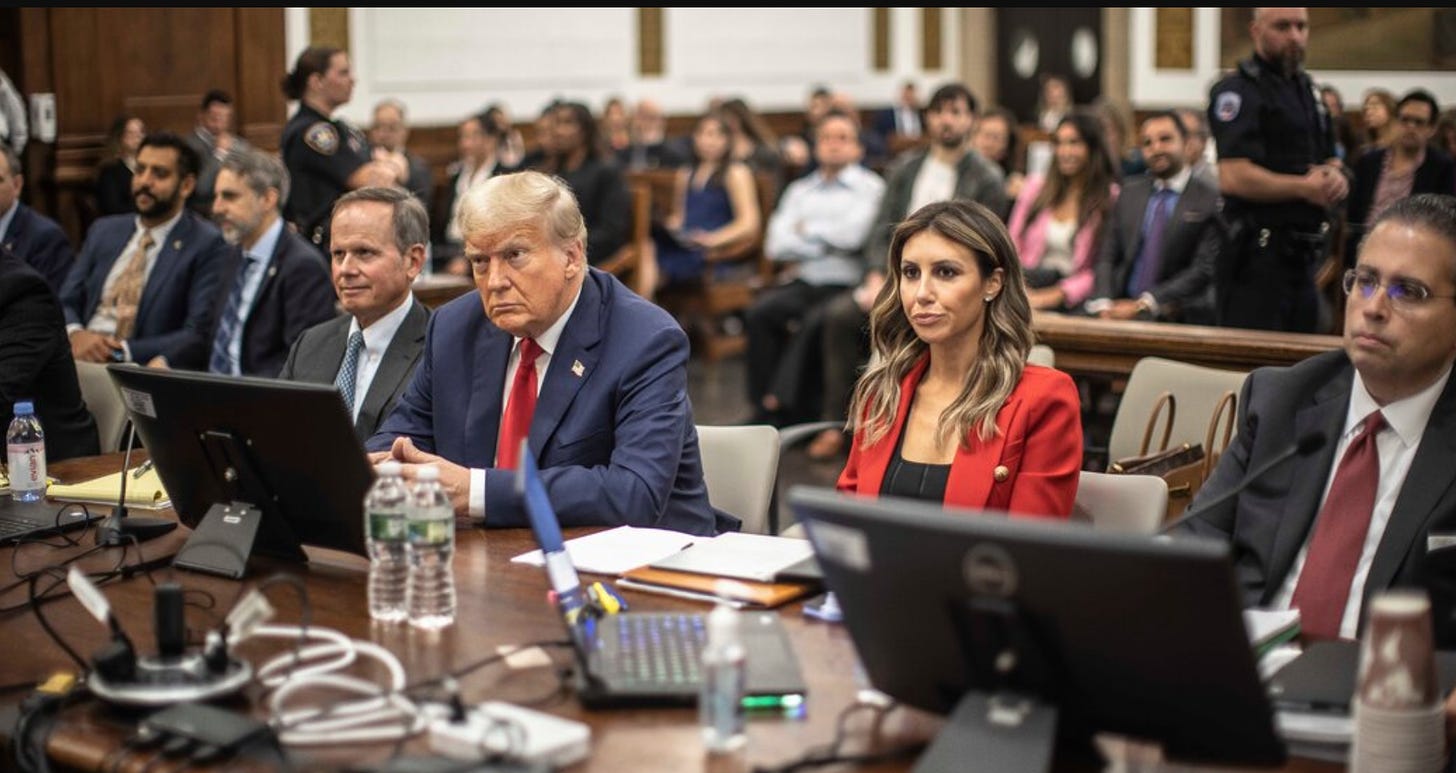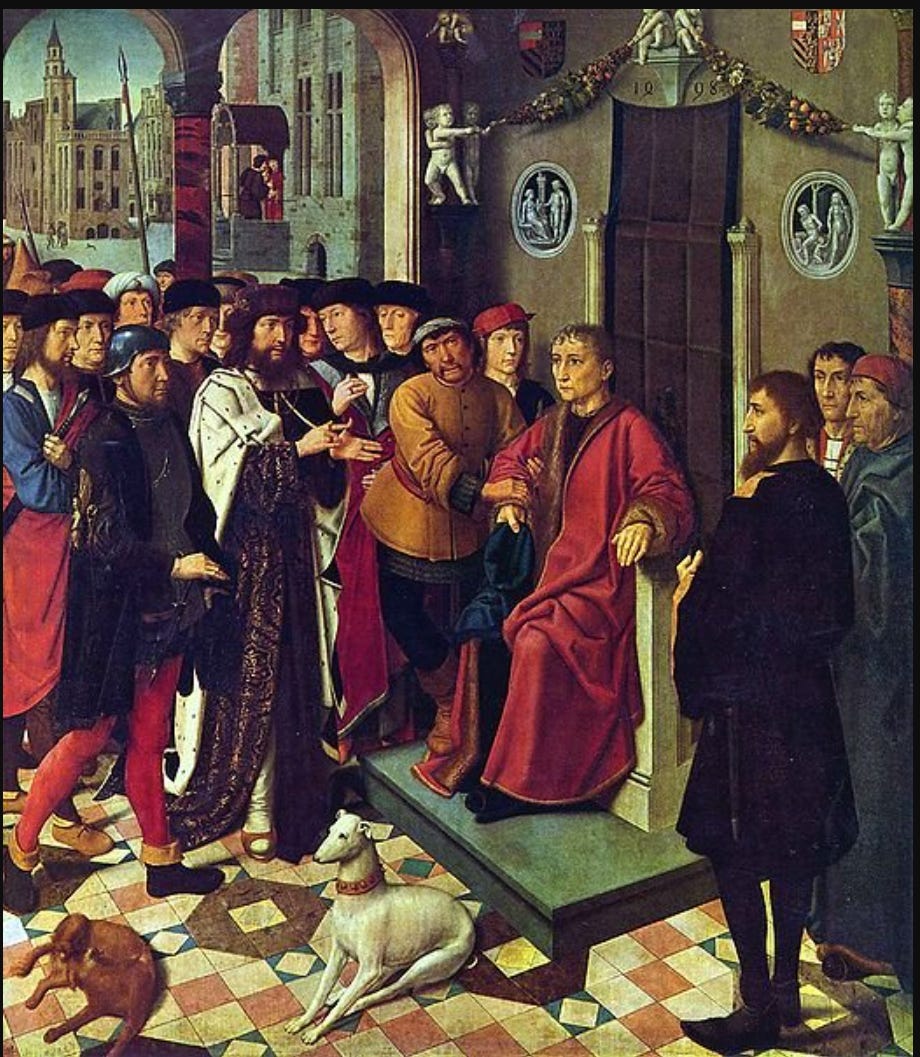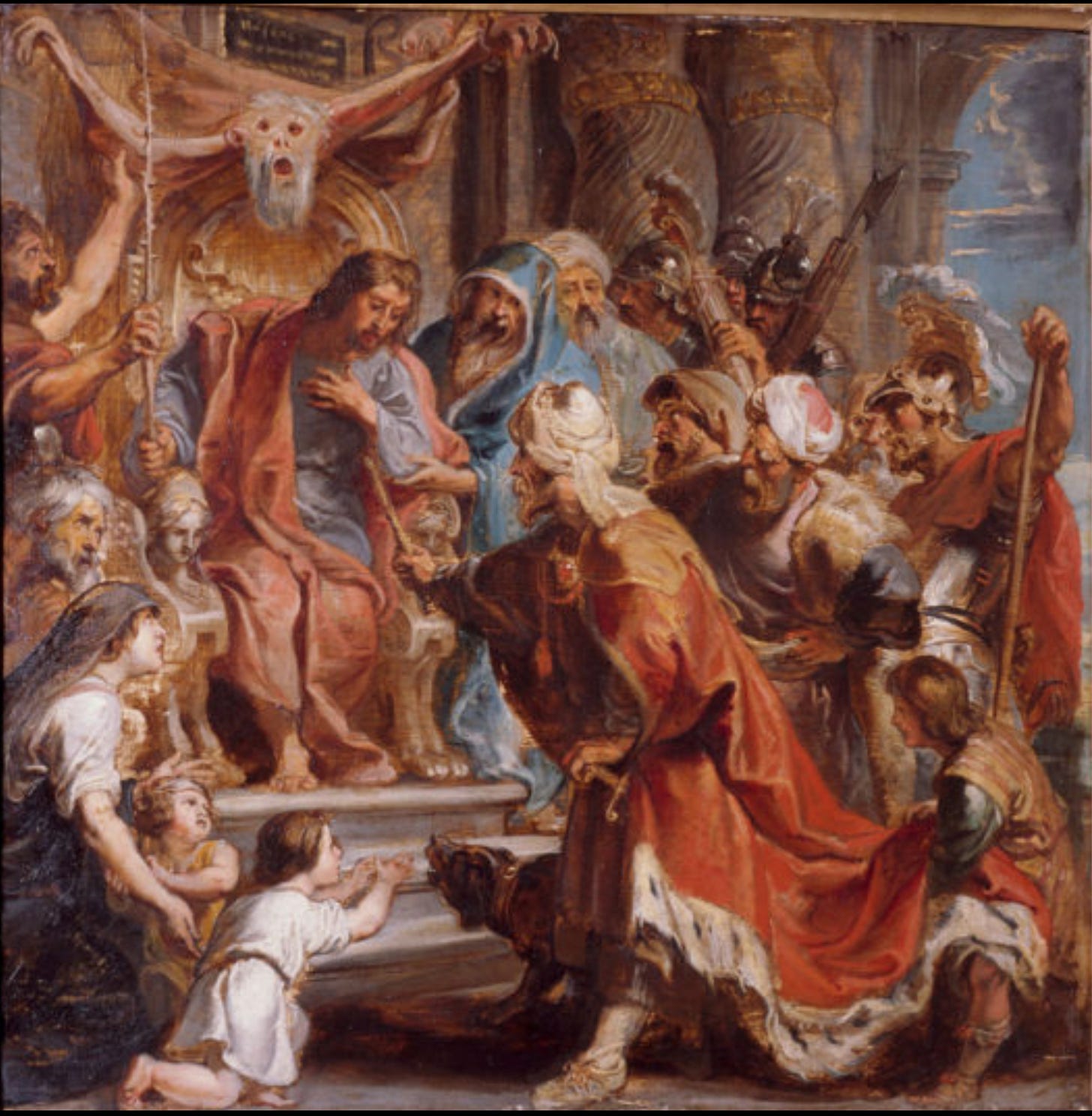
Please Follow us on Gab, Minds, Telegram, Rumble, Truth Social, Gettr, Twitter
I have been writing about judicial corruption for a few months. There appears to be a very large problem today in America with a two-tiered justice system.
Below are a few of those articles:
This issue of “Judicial Corruption” became very apparent to many Americans when we first saw many courts dismissing election cases brought by Americans based on standing. This shallow attempt to dismiss cases not on their merits but rather on misapplied technicalities was recently seen in Maryland by the morally bankrupt and intellectually dishonest Federal Judge appointed by Obama.
That case is now on appeal in the 4th Circuit.
The judicial corruption became even more apparent in the numerous Trump cases being heard as part of the deep state lawfare operations against Donald Trump in New York State and against his attorneys nationwide.

Judicial corruption, a blight on the administration of justice, is not a modern phenomenon. It has plagued societies across different eras and regions, revealing a persistent challenge in maintaining judicial integrity. From ancient civilizations to contemporary societies, the battle against corruption in the judiciary has been ongoing.
In Ancient Egypt, judicial corruption was recorded as far back as the New Kingdom period (circa 1550–1077 BCE). Pharaohs had to intervene occasionally to ensure justice was served. Records from the period show instances where judges were bribed to render favorable verdicts. The Pharaonic authorities took steps to rectify this, including public trials and severe punishments for corrupt judges.
In Ancient Greece, the judicial system was similarly vulnerable to corruption. The Athenian democracy relied heavily on a jury system where citizens could be bribed or influenced. The comic playwright Aristophanes frequently satirized the Athenian legal system, pointing out its susceptibility to bribery and corruption. The story of Sisamnes, as told by Herodotus, underscores the severity of judicial corruption in ancient Greece and Persia, where severe punishments were meted out to corrupt judges.
The story concerns the trial and execution of an unjust and corrupt judge, Sisamnes which occurred in the 6th BC. The Greek historian Herodotus preserved the story of the harsh judgment of the Persian King Cambyses II, who reigned 529-522 B.C., against the corrupt judge Sisamnes. The story is presented in the fifth book of Herodotus’s Histories.

Sisamnes, was a royal judge under the reign of King Cambyses II. Sisamnes accepted a bribe from a party in a lawsuit, and therefore rendered an unjust judgment. King Cambyses learned of the bribe, promptly had him arrested and punished, but by no ordinary punishment. The punishment was as creative as it was cruel:
King Cambyses slit his throat, flayed off all his skin, and he strung the chair, on which Sisamnes had used to sit to deliver his verdicts, with his skin.

King Cambyses then appointed Sisamnes’s son, Otanes, as the new judge. King Cambyses warned Otanes to bear in mind the source of the leather of the bench upon which he would sit to hear evidence, deliberate, and deliver his decisions. Without a doubt King Cambyses’s warning was significantly reinforced by the reupholstered seat and more than likely left a lingering impression on his new judge and every other judge in the land.

The Roman legal system also grappled with corruption. During the late Republic and the Empire, judicial corruption was rampant, especially among the wealthy and powerful who could easily sway decisions in their favor. Julius Caesar, during his time as a reformer, attempted to curb this by implementing laws that imposed heavy penalties on corrupt judges and public officials. Despite these efforts, corruption persisted, leading to widespread public disillusionment with the judicial system.
During the medieval period in Europe, judicial corruption was often linked to the feudal system. Lords who held judicial powers over their lands could easily manipulate outcomes to favor themselves or their allies. The church also played a significant role in the judicial system, and ecclesiastical courts were not immune to bribery and corruption. Efforts to combat corruption included church reforms and the establishment of more centralized legal systems, such as the English common law.
The Renaissance period saw significant corruption within the judicial systems of various Italian city-states. The powerful Medici family in Florence, for example, was notorious for using their wealth and influence to manipulate legal outcomes. Niccolò Machiavelli, in his writings, often criticized the corruption and the manipulation of the legal system by powerful families and individuals.
In colonial America, judicial corruption was a pervasive issue that significantly influenced the legal and political landscape of the time. The judicial system under British colonial rule was fraught with instances of bribery, favoritism, and political influence, which undermined the integrity of the courts and contributed to growing discontent among the colonists. The desire for a fair and impartial judiciary played a crucial role in the movement towards independence and the framing of the U.S. Constitution.
In the British colonies, judges were often appointed by the Crown or colonial governors who were themselves appointed by the Crown. This method of appointment created a judicial system that was heavily influenced by the interests of the British monarchy and colonial authorities. Judges, whose positions and salaries were dependent on the favor of the Crown, were susceptible to corruption and undue influence. This dependence often led to biased rulings that favored the British authorities and wealthy elites, undermining the principles of justice and fairness.
Bribery was a common practice in the colonial judicial system. Wealthy individuals and influential colonists could bribe judges to secure favorable verdicts. This practice eroded public confidence in the judicial system and highlighted the lack of impartiality in legal proceedings. Favoritism also played a significant role, with judges often favoring friends, family members, or political allies, further compromising the integrity of the courts.
The pervasive judicial corruption had a profound impact on the colonists. It led to widespread disillusionment with the British legal system and contributed to the perception that the Crown was not committed to upholding justice for all its subjects. Cases of unjust rulings and the lack of recourse for ordinary colonists fueled resentment and anger, becoming one of the many grievances that drove the colonies towards seeking independence.
The desire for a fair and impartial judiciary was a significant factor in the growing revolutionary sentiment in the colonies. The colonists' experiences with judicial corruption underscored the need for a legal system that was independent and free from undue influence. This aspiration was reflected in the revolutionary rhetoric and the foundational documents that emerged during the struggle for independence.
The Declaration of Independence, drafted in 1776, specifically addresses the issue of judicial corruption. One of the grievances listed against King George III is his interference with the colonial judiciary. The Declaration accuses the King of making judges dependent on his will alone for their tenure and salaries, highlighting the colonists' desire for an independent judiciary.
The experiences of judicial corruption in colonial America profoundly influenced the framers of the U.S. Constitution. They sought to create a system of checks and balances that would prevent the concentration of power and ensure the independence of the judiciary. Key features of the U.S. Constitution reflect this commitment:
The Constitution established an independent judiciary by providing for the lifetime appointment of federal judges, subject to good behavior. This provision aimed to insulate judges from political pressures and ensure that they could make decisions based on the law and not on external influences. Article III of the Constitution specifically outlines the powers and structure of the judicial branch, emphasizing its independence from the executive and legislative branches.
The framers of the Constitution implemented a system of checks and balances to prevent any one branch of government from becoming too powerful. This system ensures that the judiciary can operate independently while still being accountable. For example, while the President appoints federal judges, those appointments must be confirmed by the Senate. Additionally, judges can be impeached and removed from office for misconduct, providing a mechanism for accountability.
The first ten amendments to the Constitution, known as the Bill of Rights, further reinforce judicial independence and protect against judicial corruption. The Sixth Amendment guarantees the right to a fair trial, including an impartial jury, and the Eighth Amendment prohibits excessive bail and cruel and unusual punishment. These provisions were designed to protect individuals from abuses of judicial power and ensure fairness in the legal system.
The commitment to an independent and impartial judiciary established by the framers of the U.S. Constitution remains a cornerstone of American democracy. However, the battle against judicial corruption is not something that the deep state RICO conspirators behind the curtain want exposed.
Vigilance is required to maintain the integrity of the judiciary and to ensure that it remains free from undue influence and corruption. Modern mechanisms, such as judicial review, judicial conduct commissions, and transparency initiatives, today do not appear to play a vital role in upholding the principles established by the framers.
All three branches of government have been 100% compromised.
Rigged elections have consequences. In America today we have (S)elections not Elections. The evidence that I have personally obtained and the evidence that other deeply concerned patriots across America have obtained is irrefutable and mathematically certain.
The pervasive judicial corruption in colonial America significantly influenced the development of the U.S. judicial system. The desire for a fair and impartial judiciary was a driving force behind the American Revolution and the framing of the Constitution. The principles of judicial independence and checks and balances enshrined in the Constitution reflect the framers' commitment to preventing corruption and ensuring justice for all.
All government power is derived from the consent of the governed. Without the consent of the governed, the government ceases to be legitimate.
The compromised three branches of the Federal government have been showing “We the People” that the rule of law is dead and they refuse to be restrained by the United States Constitution.
These compromised three branches have been infiltrated by a vast RICO enterprise who has weaponized the United States government against “We the People”.
Just showing up to the polls and voting is not going to help fix this. You must get involved. You must talk to you neighbors. The survival of your family and our nation hangs in the balance.
Do you know anything about the local judges where you live?
How do they rule?
Are they soft on crime?
Who financed their political campaigns?
Are their financial disclosures questionable?
Are their family members benefiting from their rulings? Like Judge Merchan’s daughter in the case that Alvin Bragg brought against Donald Trump?

Are the local district attorneys, prosecutors and State Attorney General compromised where you live?

In Pinellas County Florida a grassroots organization called Pinellas County Watchdogs have been doing great work in holding (S)elected officials accountable.
You can check them out here:

If you don’t have an organization like “Pinellas Watchdogs” where you are at start one with your neighbors and friends.
You can also make a tax deductible donation to The Justice Society and help support the efforts in “Obtaining Justice” and “Exposing Government Corruption”.
If you are like many other Americans financially impacted by the (S)elections and are unable to support our missions financially, just share the truth that we have been uncovering and get active locally.

